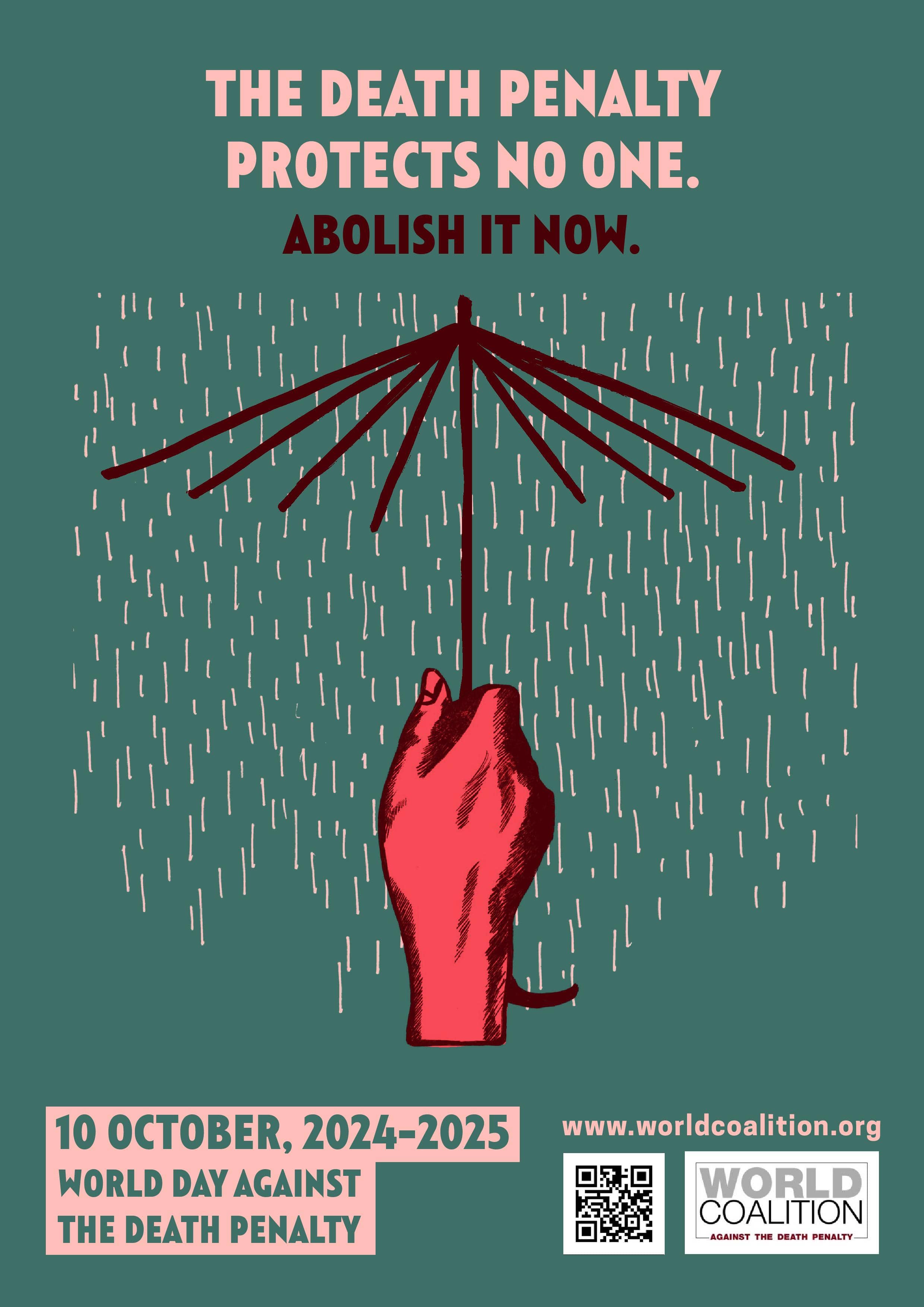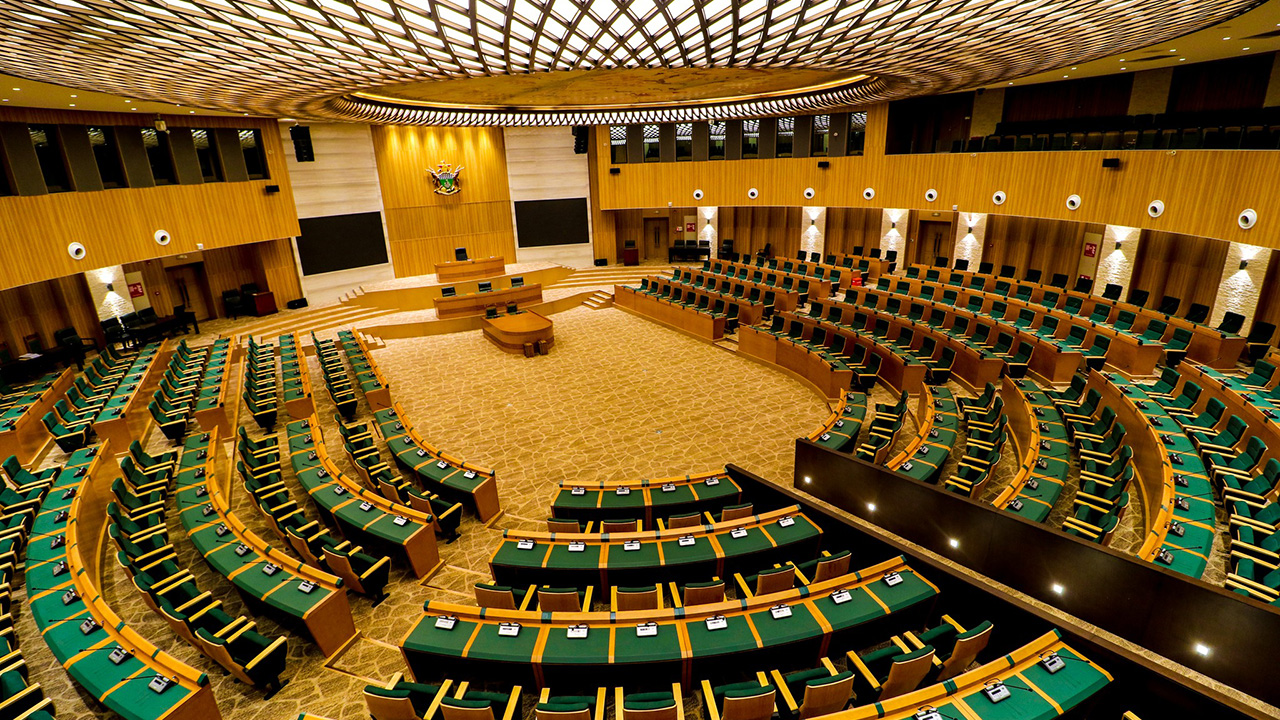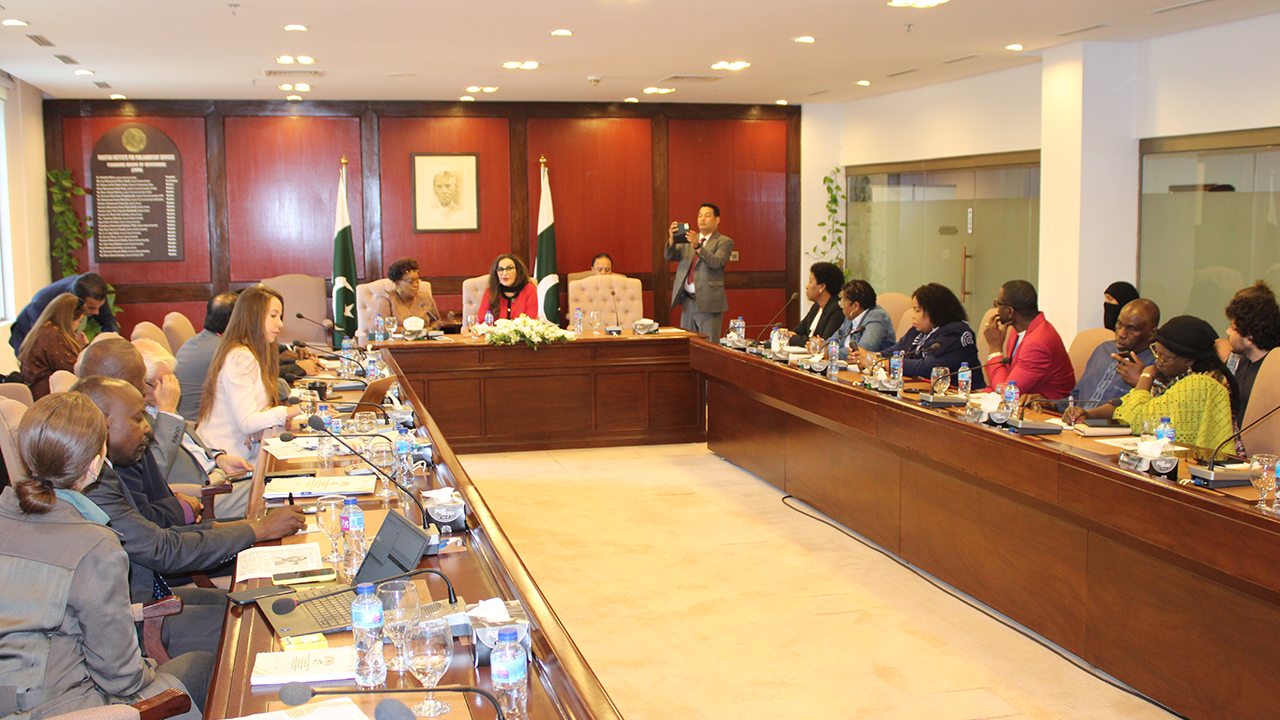10 October 2024 – Nairobi/New York/The Hague
Each year on 10 October, the global abolitionist movement comes together to observe the World Day Against the Death Penalty. In 2024 and 2025, the focus will be on addressing the myth that the death penalty ensures safety, with the message: “The Death Penalty Protects No One: Abolish it Now.”
The year 2024 is sadly marked by an alarming rise in conflicts, violence, and deepening social inequalities, pushing security concerns to the forefront of the global agenda. Whereas the international community faces a serious global crisis of the international rule of law and the shortfall of diplomatic solutions, it is unacceptable that the death penalty continues to be offered as a simplistic solution to address instability and repress insecurity. Capital punishment must never be used as an instrument of security policy that allows the violation of human rights in the name of State protection.
Decades of research has consistently demonstrated that death penalty neither deters crime nor enhances public safety. On the contrary, studies on this subject all conclude that such deterrence link does not exist: abolitionist States have lower crime rates, and countries abolishing the death penalty experience a reduction in homicides. However, analyses do demonstrate that the use of capital punishment is not only a process that inflicts torture and other forms of ill-treatment on death row inmates and immense suffering on convicts, their families, victims’ relatives, as well as those participating in the criminal justice and prison systems, but it also fails to address the root causes of violence and insecurity, thereby perpetuating cycles of crimes.
I invite all my fellow parliamentarians to reflect deeply on our collective responsibility. As representatives of our citizens, it is our duty to protect their right to live in freedom and dignity, and this begins with the abolition of the death penalty. We have the primary obligation to ensure that our response to violence is not violence, but rather a focus on addressing the root causes of suffering, discrimination and inequality. We should never undo the progress we have made, even and especially in the face of security challenges. By promoting accountability and upholding the rule of law and human rights, we can build a safer, more just society – one that respects the rights of every individual and all peoples. Abolition is the only path forward. Hon. Millie Odhiambo, MP (Kenya), Convenor of PGA’s Campaign on the Abolition of the Death Penalty
Since the launch of its Campaign for the Abolition of the Death Penalty, PGA has consistently emphasized the crucial role of parliamentarians in this effort. Legislators have the power to amend, draft and adopt legislations that narrow the scope of the death penalty and leads to its eventual abolition. They can strengthen social and judicial infrastructures by aligning them with the highest standards of the rule of law. They can contribute or call on their government to ratify key international instruments, such as the Second Optional Protocol to the International Covenant on Civil and Political Rights, aiming at the abolition of the death penalty. Finally, they play a vital role in fostering public debate, raising awareness, and ensuring that informed discussions on the death penalty take place within society.
By engaging in this path, many parliamentarians worldwide have contributed to the abolition of the death penalty in their countries, leading to the growing global abolitionist movement. It is nevertheless deeply concerning that executions keep rising, and that some countries have resumed capital punishment, particularly in regions affected by conflict and violence.
On this World Day, PGA call on its members to stand with the abolitionist movement, reaffirming a clear message: the death penalty protects no-one, abolish it now.
Every victim and every survivor has the right to see the perpetrator of a crime held to account in a court of law. But the death penalty is not a form of justice, it is an act of revenge.
The death penalty does not deter crime: there is no evidence that States with capital punishment have lower crime rates, or that crime rates increase when the death penalty is abolished. On the contrary, studies show that it is the threat of being arrested and being sanctioned – more than the severity of the sanction itself – that is the key factor in crime prevention.
The death penalty disproportionately affects the most vulnerable populations, and notably minorities, people living in poverty, people with mental disabilities and other already marginalized groups. In some countries, the death penalty can be used as an instrument of political repression.
No judicial system is immune to error: even when due process and all judicial safeguards are duly implemented and respected, it is impossible to guarantee that new evidence will not reveal that an innocent person has been executed.
The justice system should not have the right to kill: the death penalty is unethical and morally wrong. Carrying out executions violates the right to life of convicts, and deprives them of any possibility of rehabilitation and future contribution to the society.





